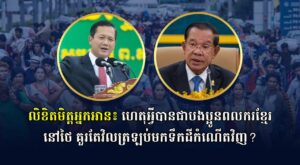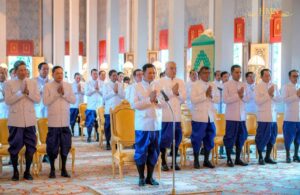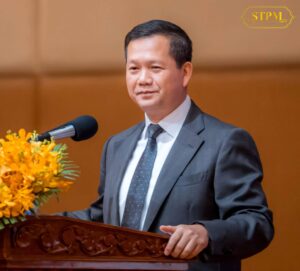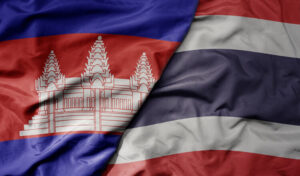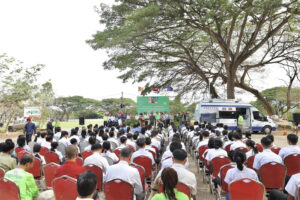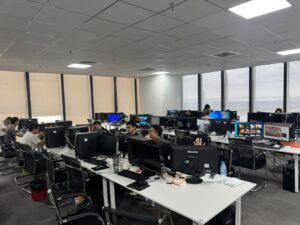Opinion: When Bullets Cross Borders, Justice Must Follow: Cambodia’s Principled Response to Thai Aggression
 Opinion: When Bullets Cross Borders, Justice Must Follow: Cambodia’s Principled Response to Thai Aggression
Opinion: When Bullets Cross Borders, Justice Must Follow: Cambodia’s Principled Response to Thai Aggression
Khmer Times | In the quiet hours of dawn on May 28, 2025, the stillness of Techo Morokot Village in Cambodia’s Preah Vihear Province was shattered—not by natural disaster, but by human aggression. Thai armed forces, in a shocking and unlawful act, crossed into Cambodian territory and opened fire on a Cambodian military post. A Cambodian soldier lost his life in that unprovoked attack. He was not just a soldier; he was a son of the nation, a symbol of Cambodia’s sovereignty and the innocent victim of an act that has no place in a region striving for peace and cooperation.
The response from the Royal Government of Cambodia has been as clear as it is dignified: to protest firmly, act responsibly, and pursue justice through legal and peaceful means. Cambodia has demanded an impartial investigation into the incident and continues to call for accountability. These are not the actions of a belligerent state—they are the steps of a country that understands the meaning of international law, the value of restraint, and the responsibilities of regional leadership.
Yet instead of diffusing tensions, Thailand has doubled down. Military buildups, arbitrary border checkpoint closures, trench digging in sensitive areas, and even threats to disrupt essential services such as electricity and internet—these actions do not reflect the behavior of a peace-seeking neighbor. They signal intimidation and disregard for the norms that underpin ASEAN unity and the global rules-based order.
At the heart of the current crisis are four deeply contested sites: Tamone Thom Temple, Tamone Toch Temple, Ta Krabey Temple, and the Mom Bei area. These are not mere patches of land—they are markers of identity, history, and legal sovereignty. For over a century, maps produced by the Franco-Siamese Mixed Commission and formalized under the 1904 and 1907 treaties have clearly placed these sites within Cambodian territory. These documents were not only recognized but reaffirmed in the 2000 Memorandum of Understanding between the two countries as the foundation for ongoing border demarcation.
But instead of honoring these mutually agreed terms, Thailand has delayed, diverted, and now refuses to respond to Cambodia’s invitation for a joint submission of the dispute to the International Court of Justice (ICJ). That silence speaks volumes.
Cambodia, for its part, has chosen the high road. It is referring the matter to the ICJ—not to provoke, but to protect; not to escalate, but to resolve. The ICJ is not a battlefield—it is a forum of fairness. Precedents abound: Malaysia and Indonesia in 2002, and Malaysia and Singapore in 2008, both used the ICJ to peacefully resolve territorial disputes. The outcomes of those cases not only upheld justice but strengthened mutual respect between neighbors. Cambodia is offering Thailand the same path.
Seeking adjudication from the ICJ is not an act of hostility. It is an affirmation of the very principles that ASEAN was built on—peaceful dispute resolution, respect for sovereignty, and adherence to international law. Cambodia has no intention of abandoning dialogue or bilateral mechanisms for the broader border issues. But when dialogue fails to move forward—when unilateral force replaces diplomacy—it becomes necessary to turn to a higher authority.
The Cambodian government has extended multiple invitations to its Thai counterpart to the ICJ. To date, there has been no response. This silence is not diplomacy; it is evasion. It is time for Thailand to demonstrate good faith by agreeing to let the world’s highest court determine what is rightfully Cambodian.
Cambodia does not seek conflict. It seeks clarity. And through the ICJ, it seeks a just, peaceful, and permanent solution—one that honors history, international law, and the rights of sovereign states.
In the face of provocation, Cambodia has chosen principle. In response to violence, it has chosen law. The international community should recognize and support this approach.
And Thailand, if it is truly committed to peace and regional harmony, must do the same.
Cambodia stands firm in its desire to turn a border of friction into a frontier of friendship. But it will never compromise on its sovereignty. It will not forget the soldier who died in defense of the homeland. And it will not walk away from the pursuit of justice.
By Roth Santepheap, Geopolitical Analyst based in Phnom Penh, Cambodia. The views and opinions expressed are his own.

